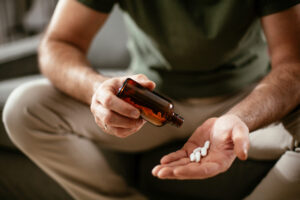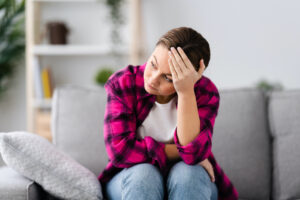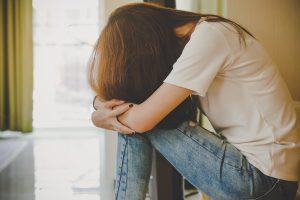Empowering Techniques
Hello Everyone! I hope that you are well. Panorama, a BBC investigative documentary series, recently aired a really interesting program about antidepressants. After it aired, The Royal College of Psychiatry published a document reiterating the right way to go about coming off antidepressants.
Depression is a chronic condition and can be fatal. Stopping medication abruptly is dangerous.
Interestingly, doctors have now been recommended not to prescribe antidepressants unless patients request them.
In the show, Tony Kendrick, who is a Professor of Primary Care at Southampton Hospital, said, “We now teach (medical) students to hold off prescribing them (antidepressants) for mild depression because most people get better doing something else for a few months, and they won’t get problems further down the line when they want to come off them.”
This post is to help you if you have depression or are considering coming off or even starting antidepressants.
Side Effects of Antidepressants
Some Facts About Antidepressants:
Medical Supervision and Coming Off Antidepressants
How Long Should You Take Antidepressants?
Diet and Lifestyle Intervention for Depression
Support for Reducing Antidepressants
How Does Food Affect Depression?

Side Effects of Antidepressants
Firstly, as the program demonstrated, you should always consult your doctor with any medical matter. Antidepressants cannot be just stopped.
The side effects of taking antidepressants can be plenty, but the benefits for many people can outweigh the adverse effects. For many, they are life-saving. Oftentimes, the negative effects make people feel changed completely.
People have stated that they have numbing feelings that help their depression. However, good feelings, love, happiness, libido, genital nerves, and interest in hobbies have also been numbed.

Interestingly, Panorama also highlighted that there are many studies where adults with moderate to severe depression have been given a placebo. 20-40 people out of a hundred showed an improvement in 6-8 weeks.
40-60 adults noticed an improvement after taking antidepressants for 6-8 weeks.
This is only an extra 20 out of 100 people!
It is important to make sure that severe depression is diagnosed and treated correctly. Antidepressants can be helpful for some people to get into a daily routine, start going to psychotherapy, and embark on a good diet and lifestyle regime – source: InformedHealth.org.

Taking antidepressants and discussing the pros and cons should be discussed with your doctor.
Some Facts About Antidepressants:
• Antidepressants cause gut dysbiosis, which can cause weight gain, type 2 diabetes, cardiovascular disease, other chronic inflammatory conditions, and autoimmune diseases – source: National Institutes of Health.
• Global consumption of antidepressants has increased dramatically in the last two decades. Long before the 2020 pandemic -source: Euronews.
• Use of antidepressants increased by nearly two and a half times from 2000 to 2020 in 18 European countries – Source: Organization for Economic Cooperation and Development.
• Two million people in the UK have taken antidepressants for five years or longer—source: the Pharmaceutical Journal.
• Long-term studies don’t support the long-term use of antidepressants (yet some people need them long-term). Clinical trials and studies on the side effects of medications are not usually longer than six weeks.
• When medications are taken over a long period, the body and brain adapt to it. This leads to tolerance, lessening the effects over time, and withdrawal when stopping. Dependence is different than addiction, which also involves cravings and compulsive use – source: Dr. Mark Horowitz (UCL Psychiatry).

Medical Supervision and Coming Off Antidepressants
Around the world, antidepressants have been beneficial for people who have faced devastating and life-threatening conditions and have saved lives.
However, because of how they have always been marketed as a ‘magic bullet’ that you can easily stop taking safely, I am sure that many people with mild depression or anxiety would not have started them if they had known about the side effects.
When people have come off them, the side effects have been mistaken as part of their depression condition and gone back on them again.
The Royal College of Psychiatrists explains that there are some ways that you and your doctor may know what withdrawal symptoms are and what are signs of depression through timing. Withdrawal symptoms generally start immediately after discontinuing antidepressant use. Depression will usually take longer to return. Of course, this is all for discussion with your medical practitioner/therapist.

There are usually side effects of any medication. Like I always say, they can often save you, but they are not for the long term for everyone.
Medication causes gut dysbiosis.
This is when the induction of susceptibility to many pathological conditions occurs. Gut dysbiosis actually contributes to depression and anxiety.
So, the medication you take for depression can cause depression.
It is also linked to joint pain, skin inflammation, hair loss, gastrointestinal issues, cardiovascular complications, weight gain, obesity, and cancer.
Medications can keep your body inflamed!
How Long Should You Take Antidepressants?
The Royal College of Psychiatrists’ advice on Stopping Antidepressants says, ‘How long you take antidepressants depends on why you were prescribed them. You usually don’t need antidepressants for more than 6-12 months’. It should be reviewed every six months on a joint decision between the person with depression and the medical practitioner.
Clinical trials and studies on the side effects of medications are not usually longer than six weeks.

However, they also state that some people need them for longer. It really is a matter to be discussed with your therapist/doctor.
Diet and Lifestyle Intervention for Depression
Antidepressants have often been prescribed for mild cases when they were not necessary. As the Professor at The College of Southampton stated, doing something else for a few months may be more helpful to avoid damaging withdrawal symptoms further down the line.
Diet and lifestyle intervention is often prescribed and is good for treating depression as it is noted that what we eat and how we live do contribute. Of course, one size does not fit all, and mental health is a complex condition, but there is evidence of how an integrative approach supports mental health.
Especially since the right type of eating supports the microbiota-gut-brain axis, modulates the immune system, and reduces inflammation.
Check out the post: Microbiota-Gut-Brain Axis & Mental Health.

The prevention, promotion, and management of depression through the gut-brain axis with this anti-inflammatory lifestyle are gaining more and more traction. I know how Eat Burn Sleep is helping people with depression and anxiety. Members are continuously telling me, so I can genuinely say that this anti-inflammatory lifestyle is evidence-led as well as scientifically backed for improving mental health.
Mental well-being is usually always mentioned even when members have joined to reduce their weight, bloating, PCOS, alopecia, eczema, arthritis, migraines, Crohn’s Disease, ulcerative colitis, and so on! The connection is chronic inflammation!

Indeed, focusing on gut-healthy nutrition, anti-inflammatory movements, stress-reducing exercises, good sleep-wake cycles, meditation, mindfulness practice, and support in reducing cravings that don’t help will assist during tapering or even while you are on medication.
Support for Reducing Antidepressants
I advise that you talk with your doctor if you are thinking about reducing your antidepressants and show them this BUPA-Global-approved lifestyle. Stopping antidepressants immediately is potentially dangerous for some. Having your mental health toolbox to support you during this time is essential.

Many areas in life that can impact mental health, like obesity, stress, lack of sleep, poor diet, and exposure to pollutants, can increase low-grade systemic inflammation.
Cortisol and oxidative stress in the body also induce chronic inflammation. You may need professional help with psychological trauma, which is a well-established risk factor, but another well-established risk factor is chronic inflammation, and this is something that you can have control over. Controlling things that you can, where you can, helps.
Members follow the comprehensive science-backed personalized advice for Depression & Anxiety. It is a natural alternative to antidepressants and will help you manage depression and support you when reducing antidepressants.
Or even if you don’t want to come off antidepressants just yet, it will help you because there are compounds in foods you shouldn’t have when you are on certain antidepressants, for instance, and it may just contribute to combatting side effects.

It is a safe way to enhance physical and mental well-being and has positive side effects like continual mood-lifting, weight management, and better body composition.
How Does Food Affect Depression?
Malnutrition and many diets, like the keto diet and low-calorie diets, are linked to depression because of the decline in gut species richness and beneficial microbes in the gut. Starving your body of what it needs may not show itself now.
An abundance of microbiota-loving nutrients will support your gut, brain, and immune health, aiding the production of serotonin and reducing neuroinflammation. This may reduce any side effects, as healthy gut microbiota is established and will certainly be supportive. Mental resilience will improve.

This is very much a mental and physical health education platform, with easy-to-make (even for the very busiest of you) 300+ good-mood food recipes.
Enjoy recipes inspired from around the world, like Vietnamese Chopped Salad & Healthy Speculoos Biscuits.
I would also advise that you pick your moment in coming off antidepressants if you do. The sunnier climes may make it easier because of the benefits of the mood and sleep-boosting sunshine.
Ensure you have good support around you. Connect with our supportive nutritionists any day of the week in our forum, or reach out to me via a 15-min Zoom call.
I wish you all well!


